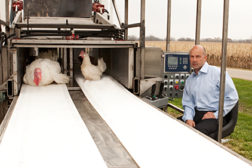Editors Viewpoint
Better luck with lending
Companies looking to improve their business will find the banking industry more open to loans
April 21, 2011
Stay ahead of the curve. Unlock a dose of cutting-edge insights.
Receive our premium content directly to your inbox.
SIGN-UP TODAYCopyright ©2024. All Rights Reserved BNP Media.
Design, CMS, Hosting & Web Development :: ePublishing











